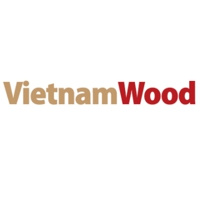- Read all
- Rice
- Fisheries
- Cassava
- Fertilizer & Pesticide
- Coffee
- Animal Feed
- Cocoa
- Seed
- Tea
- Wood
- Pepper
- Agricultural Cooperations
- Cashew
- Agricultural Investments
- Rubber
- Governmental Policies
- Sugarcane
- Agricultural Startup Ecosystem
- Corn
- Technological Innovations
- Spices
- Organic Agriculture
- Bean
- Food Manufacturing
- Fruit & Vegetable
- Agricultural Value Chain
- Flower
- Water & Waste Management
- Meat
- Processed Food
- Dairy
- Plant Originated Products
- General Agro Commodities
- Animal Originated Products
CHINA EXPLAINS TO ASEAN MEMBERS ABOUT ORDER 248 AND 249
November 27, 2021
Ten key groups of questions from Vietnam and other ASEAN members have been answered by representatives from China's General Administration of Customs in an online meeting on November 24.

An overview of meeting between China's General Administration of Customs and ASEAN members on November 24. Photo: Ba Thang.
On November 24, the ASEAN Secretariat in coordination with China's General Administration of Customs (GAC) held an online meeting with competent authorities and representatives of relevant associations of ASEAN members to explain the two new regulations-Order 248 and Order 249 on enterprises’ registration and food safety management measures for food imports into China.
Representing Vietnam were SPS Vietnam Office, Plant Protection Department, Department of Animal Health, Department of Quality Management of Agriculture, Forestry and Fisheries under the Ministry of Agriculture and Rural Development (MARD), Department of Food Safety (Ministry of Health). ), Science & Technology Department, Asia - Africa Market Department (Ministry of Industry and Trade), associations, industries and some related business enterprises.
The meeting heard GAC representatives presenting the main contents of Orders 248 and 249. On the basis of questions from Vietnam and ASEAN members, the Chinese side answered a number of key groups of questions.
Specifically: (1) For 4 types of products registered and granted codes according to Diplomatic Note 353, including meat and meat products; aquatic products; milk products; bird's nest and products from bird's nest, the registration codes continue to be valid according to the Protocol signed between competent authorities and the GAC.
(2) Order 248 applies only to processing - production - preservation enterprises, and not to commercial enterprises.
(3) Before the effective date of Order 248, 249 (January 1, 2022), competent authorities of exporting countries can use two registration methods: on the website, or by the existing methods between the two sides.
After January 1, 2022, the competent authority will log in on the website: https://singlewindow.cn of the GAC to register.
(4) For the remaining 14 types of products identified in Diplomatic Note 353, including animal intestines, bee products; eggs and egg products; cooking oil and oil; stuffed flour; edible cereals; industrial cereal and malt preparations; fresh and dehydrated vegetables; dried beans; nuts and seeds; dried fruit; unroasted cocoa beans and coffee beans; special dietary foods and health protection foods, enterprises can complete the registration procedures themselves according to Article 7, Order 249 of the GAC. For other products, enterprises should see Article 8, Order 248.
(5) For enterprises that want to register their dossiers to the GAC, they should complete procedures including (i) a Description of technology and production line; (ii) a report on Composition of ingredients in the product; (iii) Origin of the ingredients; (iv) Ratio of ingredients.
(6) For enterprises that have completed the registration documents and submitted them before October 31, 2021, the results will be announced by the GAC in the second half of December 2021.
(7) Records of self-registered enterprises can be searched on the GAC’s registration link. The enterprise will use a name and account registered with the Chinese side to update information, and process additional documents ...
(8) All enterprises’ registration documents and information are kept confidential when using the GAC’s registration system. Enterprises should self-preserve private information about their registered accounts (account name and password) and should not share them.
(9) When registering, each product of an enterprise will be assigned a unique code by the GAC. Enterprises with many products will be issued with relevant codes.
(10) When declaring customs procedures for export shipments, enterprises’ documents must have a code issued by the GAC. In case of missing or lost records, they will not meet the declaration requirements.

A GAC representative answers questions from the ASEAN members. Photo: Ba Thang.
With the goal of not disrupting trade between ASEAN members and China, the GAC requested relevant parties to complete the business registration before December 31, 2021. At the same time, the Chinese side expressed its wish to co-ordinate and get support from competent authorities of ASEAN member states.
The Vietnam SPS Office, with its function as a focal point for transparency of WTO Members' regulations, has timely sent notices to relevant agencies, summarizing a number of groups of questions and sending them to the GAC before and during the November 24 meeting.
Dr. Ngo Xuan Nam, Deputy Director of Vietnam SPS Office, pledged comments that had not been clarified during the meeting on November 24 will continue to be transferred to the GAC.
"We hope that competent authorities, associations, sectors and enterprises exporting to China will get satisfactory answers in the earliest time," he said.
In April 2021, the GAC issued Order 248 of "Regulations on managing registrations of foreign food enterprises", and Order 249 on "Measures for managing food safety in food export-import".
These two Orders will take effect from January 1, 2022. Foreign enterprises, including Vietnam, who want to export to China, are required to comply with new regulations.
The MARD had compiled and sent to the GAC a list of 156 food manufacturing enterprises through direct exchange and diplomatic channels in early November 2021.
There is more than a month left for Orders 248, 249 to take effect. During this time, the MARD and the Vietnam SPS Office hope that domestic enterprises will fully understand the application forms, report forms, and registration methods for raw aquatic products in producing food, technical information on seafood product labels, as well as business registration codes.
Source: nongnghiep.vn
Translated by Trang Nguyen
Related news
-
Growing organic oranges is difficult to do but the price is twice as high
Tuyen Quang In this year's orange crop, organic orange growers in Ham Yen district (Tuyen Quang) earned hundreds of millions of dong in profit because oranges were well priced and accepted by the demanding market.November 24, 2022 -
Heighten Vietnam - USA cooperation relationship through agriculture
(VAN) Through 8 proposals to the new US Agricultural Counselor, Deputy Minister Nguyen Hoang Hiep hoped that trade between the two countries would soon regain its growth momentum.November 23, 2022 -
World wheat prices soar, India seizes export opportunities
India completed deals to export half a million tonnes of wheat in recent days and is expected to sign more contracts to take advantage of record-high global prices.November 22, 2022
Events See more

Vietnamplas 2022 - Vietnam International Plastic and Rubber Industry Exhibition
23-03-2023 - 26-11-2022 09:00 - 17:00
Saigon Exhibition and Convention Center (SECC) – 799 Nguyen Van Linh Boulevard, District 7, City. Ho Chi Minh.

GROWTECH EXPO - FLORAPLANTEXPO 2021
02 - 05-11-2022 09:00 - 17:00
Saigon Exhibition and Convention Center (SECC) – 799 Nguyen Van Linh Boulevard, District 7, City. Ho Chi Minh.

VTG 2022
18 - 25-10-2022 09:00 - 17:00
Saigon Exhibition and Convention Center (SECC) – 799 Nguyen Van Linh Boulevard, District 7, City. Ho Chi Minh.

VIETSTOCK 2022 - SPECIALISED EXHIBITION OF LIVESTOCK, FEED AND MEAT PROCESSING IN VIETNAM
12 - 14-10-2022 08:00 - 17:00
799 Nguyen Van Linh, Tan Phu Ward, Dist. 7, Hochiminh City, Vietnam

VTG 2022
21 - 27-09-2022 09:00 - 17:00
Saigon Exhibition and Convention Center (SECC) – 799 Nguyen Van Linh Boulevard, District 7, City. Ho Chi Minh.
.png)
VIETFISH 2022
22 - 26-08-2022 09:00 - 17:00
Saigon Exhibition and Convention Center (SECC) – 799 Nguyen Van Linh Boulevard, District 7, City. Ho Chi Minh.
Business Opportunities See more
-
BURANI INTERFOOD is looking for Buyers in Vietnam
Type:
November 22, 2021
-
BURANI INTERFOOD is looking for Buyers in Vietnam
Type: Wholesaling Meat
November 22, 2021
-
BURANI INTERFOOD is looking for Buyers in Vietnam
Type: Wholesaling Meat
November 22, 2021
-
BURANI INTERFOOD is looking for Buyers in Vietnam
Type: Wholesaling Meat
November 19, 2021
-
BURANI INTERFOOD is looking for Buyers in Vietnam
Type:
November 19, 2021
-
Indian purchaser looking for high quality cashew nut kernel from Vietnam
Type: Exporting Cashew
Mar 14, 2016
534
Limitless database of qualified and verified agricultural partners
124
Exclusive buy & sell leads on specific agricultural commodities
24
Agricultural events in Vietnam and Asia Pacific region
Stay informed!
Enter your email address below to receive updates each time we publishes new content
